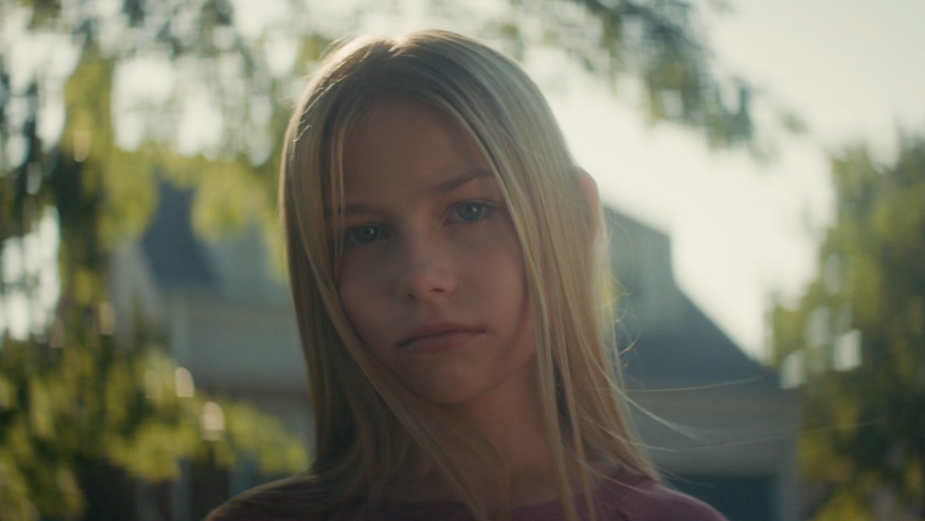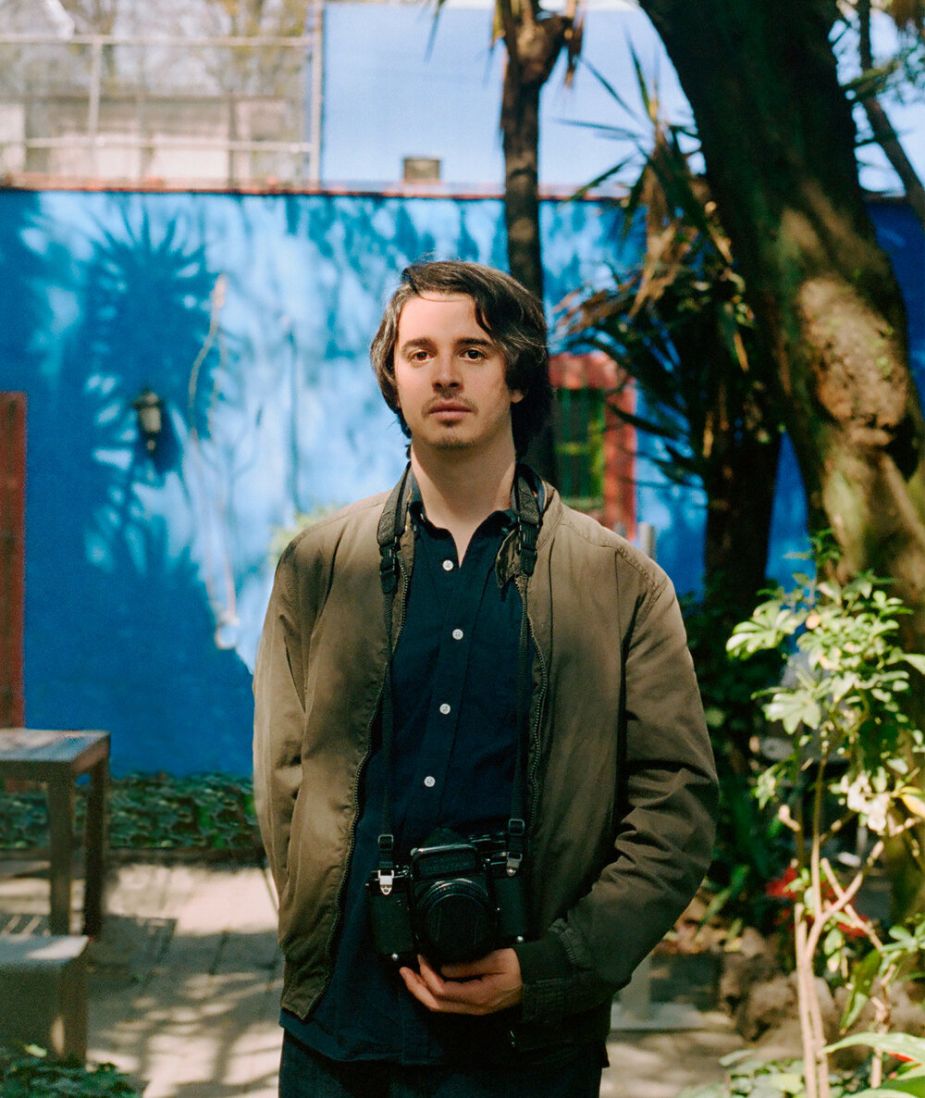
LBB Film Club: Influx

'Influx' is a poetic short film that sinks into the themes of domestic violence, alcoholism and love. Director Daniel Uribe (who is also an art director at Brand New School) was inspired to make the film after seeing a TED talk by Leslie Morgan Steiner entitled 'Why domestic violence victims don't leave. "I was completely immersed in how she described how difficult it is for some domestic violence victims to leave their abuser because of the love and loyalty they have for them and the hope that they will change," he said in a director's statement.
From there he began crafting a poem and a short film with the aim to capture what it's like to be trapped in a situation like this but with an underlying feeling of hope.
LBB's Addison Capper chatted with Daniel to find out more about his intentions with this film and how brought it to life.
Check out the film below - please be aware of the subject matter before watching.
LBB> This film is inspired by Leslie Morgan Steiner’s TED talk, ‘Why domestic violence victims don’t leave’. What was it about that talk that struck such a chord with you? And why were you inspired to make a film around it?
Daniel> After watching Leslie’s TED talk I was struck by her description of how difficult it is for some domestic violence victims to leave their abuser because of the love and loyalty they have for them and the hope that they will change. Previously, I was under the impression that in a domestic violence relationship the victim could easily leave their partner, it seemed to me like a simple solution. But what happened to Leslie and her abusive relationship put things into perspective for me, and showed me the full spectrum of the vicious cycle that traps people in these situations. It took several incidents and having a gun pointed to her head to understand that she wasn’t going to be able to fix the man she once fell in love with, and that she needed to break the silence she kept with her family and friends in order to get her life back and survive.
LBB> You wrote a poem prior to making the film - can you tell me about that? How does it feed into the end production?
Daniel> When I envisioned the film, I was inspired to write a poem that would narrate the main character’s emotions throughout the story. From this emotional perspective, I started to craft a poem that would aim to capture what it’s like to be trapped in a situation like this, and how important it is to listen to yourself and acknowledge the relationship’s toxic cycle. The idea of using a metaphor through the whiskey glass as an influx of emotions came from here, as I wanted to weave a storyline that would abstract the realisation forming deep within her.
As I storyboarded the short film I would visualise a moment that would pair with each line of the poem, accompanying the words with realistic moments in the house and with the glass metaphor. We then recorded our main actress, Anna Reichert, reading the poem, and she did an amazing job capturing all the nuances that I was after. After filming, my editor David Cea and I started to combine the footage, music, sound design, and the poem narration to tell the story.
LBB> Tell me more about the whisky glass metaphor - what was the inspiration behind that?
Daniel> When I started to write the poem I began to abstract the emotions that I wanted to convey throughout the story. I kept coming back to the sound of waves, the ocean, the force of a current and how it can take us in multiple directions. And simultaneously I knew I wanted to talk about alcoholism in the short film, since alcohol often goes hand in hand with domestic violence, even though alcohol is not a scientific cause of domestic violent behaviour.
Once I arrived at the idea of a whiskey glass, I found the perfect symbolism for the inspiration of the ocean, currents, whirlpool, waves. And thus the metaphor of a whiskey glass as an influx of emotions came to me.
“Influx - An inflow of water into a river, lake, or the sea.”
LBB> From an aesthetic and feel point of view, what were your inspirations?
Daniel> I worked a lot on pre-production with my cinematographer Htat lin Htut, he and I have collaborated on diverse projects and we have a very similar taste. As we were talking through the different scenes and sections of the film we started to realise how important the lighting and camera composition would be for each moment to convey the right sensation. Dealing with a heavy subject matter such as domestic violence raised a lot of questions to me on how to portray the truth.
A film that was a big inspiration to me was ‘Room’ by Lenny Abrahamson, because of how he was able to portray dark sequences while also capturing a sense of beauty in the world of the mother and child, and most importantly evoking hope.
From here I started to simplify the most violent scenes of the film to its core, and ask myself, how could I portray the abusive moments in the story without being too graphic or triggering? Ultimately, through composition and lighting I found I could achieve what I was after. For example, having the camera sitting on the ground and focusing on their feet while a violent moment played out.
I kept aiming for the ‘truth’ while finding some hope in certain scenes that contrasted with darker moments.
The camera movement was used in a similar manner, where I wanted the camera to feel very controlled when the abusive husband was in the scene, to emphasise his abusive control. And utilise a handheld approach when it was an intimate moment between the mother and daughter, and portray a sensation of freedom like at the end of the film.

Daniel
LBB> It feels quite hopeful to me, despite the subject matter. The music, for example, really conveyed that feeling. Why did you take that approach?
Daniel> I am glad to hear you felt a sense of ‘hope’ throughout the film. I decided early on that I didn’t want to make a film that only portrayed the darkness of domestic violence and finish on that note. I wanted the film to have a hopeful resolution, to portray a change and path out of that darkness. With the hope that anybody who sees the film would connect with the resources and support that can help them establish a better life away from their abusers.
And I wanted the music to go hand in hand with the narrative arc of the film, conveying the build up within her. So I decided to work with the talented composer Andrei Vonavi, with whom I spent time figuring out each section of the film. Focusing on certain instruments depending on the scenes, and making sure we emphasised the growth of the influx and the buildup inside of the glass metaphor. He did a superb job with the original score.
LBB> What were your main aims and ambitions with this film?
Daniel> My goal with this film is to spark hope and connect with those that find themselves in unhealthy domestic relationships. Given the current situation with the virus lockdown and recent rise in domestic abuse and alcoholism, the importance of having a dialogue regarding domestic violence is vital.
As Leslie said in her TED talk: “You have the power to end domestic violence simply by shining a spotlight on it.”
LBB> It's launched at a particularly poignant time considering the horrible stats about how much domestic violence has risen during the Covid-19 lockdown. I just wondered what your thoughts are on that and if you feel like the film has gained extra meaning or not due to that?
Daniel> We shot this film almost a year ago, so we didn’t know any of this would happen. It’s purely coincidental that we finished the film around this time, and I felt that we should release the film now more than ever.
According to the World Health Organization the number of women making emergency calls in Europe had risen 60% in April, compared to the same month in 2019. It’s important to start speaking openly about the seriousness of domestic violence, this is a universal issue, and I feel that this film has resonance now more than ever because of the current situation. Organisations such as The National Domestic Violence Hotline in the USA are providing as many tools and information as possible to anyone who needs them, so I would encourage everyone to visit their website.
LBB> Any parting thoughts?
Daniel> Domestic violence is a universal problem that we need to confront, and like Leslie mentions, “Domestic violence happens to everyone, all races, all religions, all income and education levels, it is everywhere.” According to the NCADV, one in four women experience severe intimate partner physical violence. There are many reasons why domestic violence victims don’t leave, and I encourage everyone to learn more about this here.
It’s time that everyone starts to talk about domestic abuse and educate each other, because nobody deserves to be abused, and because kids are growing up observing these behaviours and replicating them in the future.
It’s time to break the silence.













